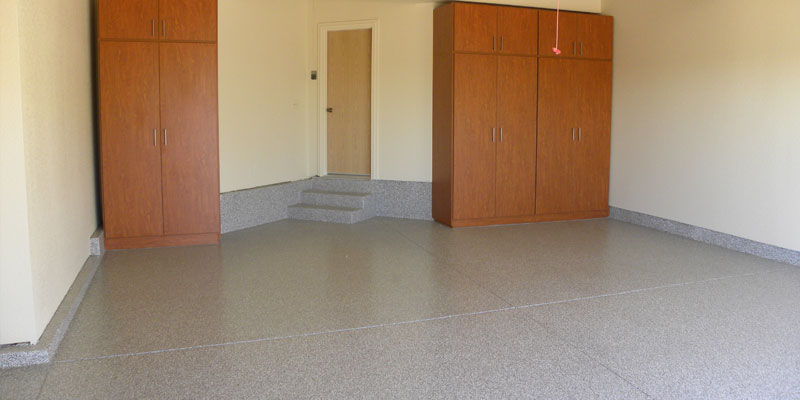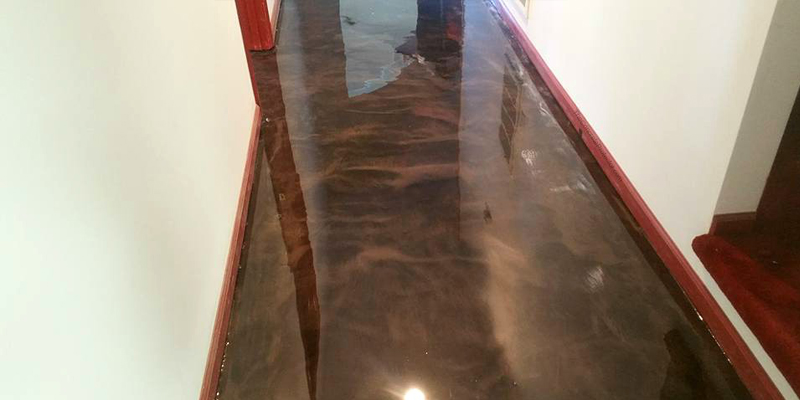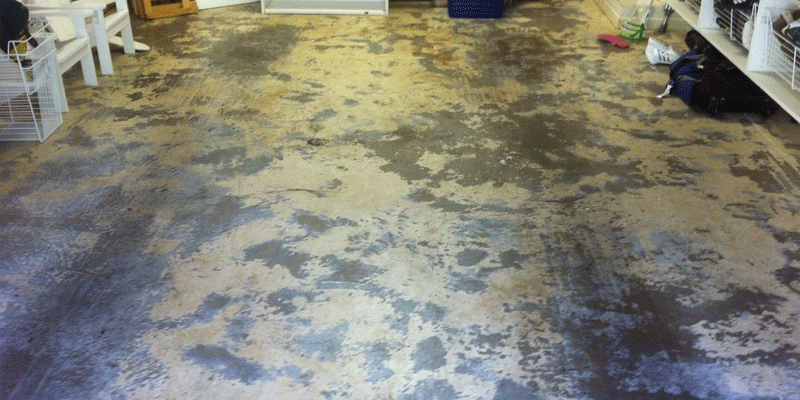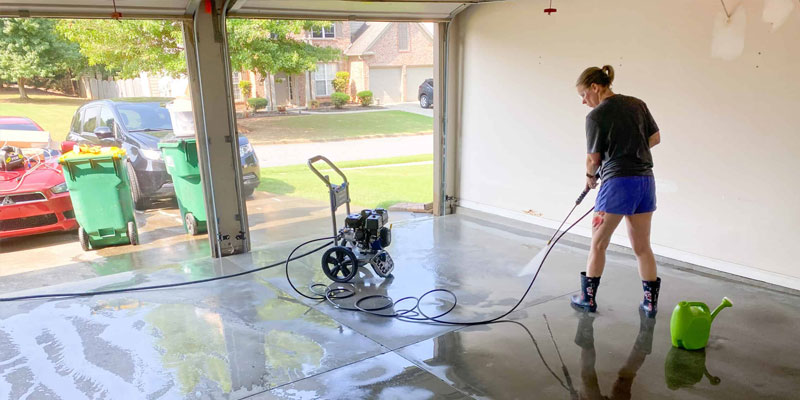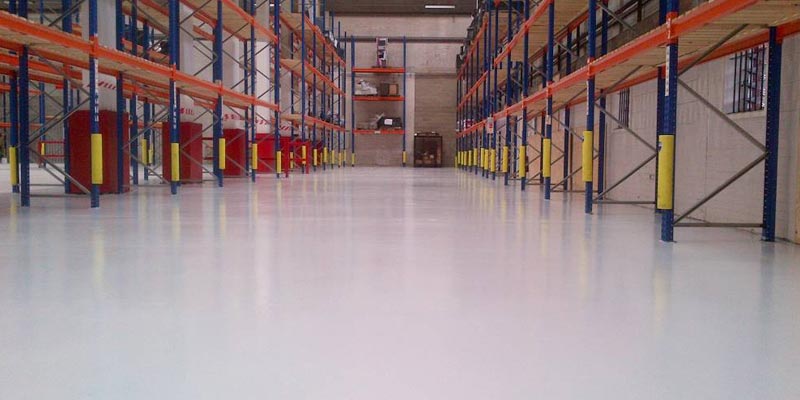Epoxy Flooring Guide: Learn the Truth about Epoxy Coatings
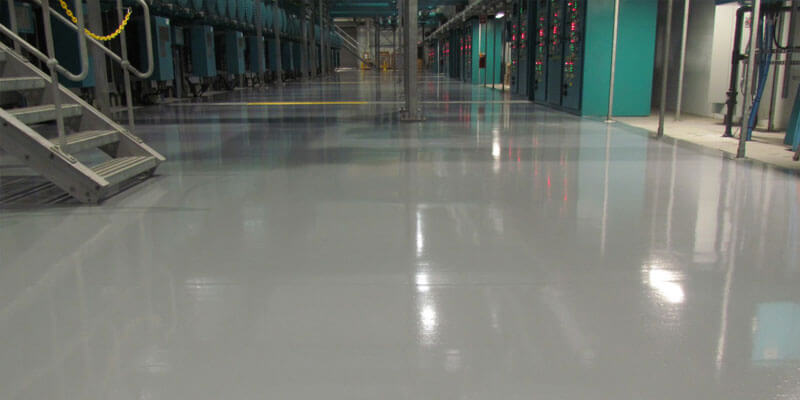
Many home and business owners are interested in epoxy flooring because of its durability and easy maintenance. However, some common misconceptions about epoxy floors can deter people from choosing this type of flooring for their space.
In this article, we will dispel some of the most common myths about epoxy floors so that you can decide whether or not this type of flooring is right for you.
What is an Epoxy Coating?
First, what is an epoxy floor coating? Epoxy is a material made from resin mixed with a hardener to create a strong, durable surface. This type of coating is often used in industrial and commercial settings because it can withstand heavy foot traffic and equipment.
Epoxy floor coatings are available in various colors and finishes so that you can customize the look of your floor. You can also add anti-slip additives to the epoxy to create a safe surface in wet or oily areas.
Where is Epoxy Installed?
Epoxy flooring is most commonly used in industrial and commercial settings such as factories, warehouses, showrooms, and garages. However, epoxy flooring can also be used in residential settings.
Some people choose to install epoxy floors in their homes because they are easy to maintain and clean. Epoxy floors are also good for people with allergies because they do not trap dust and dirt as carpets do.
What are the Benefits of Epoxy Flooring?
There are many benefits of epoxy flooring, which is why it is such a popular choice for both commercial and residential settings. Some of the benefits of epoxy flooring include:
-Durable: Epoxy floors are very durable and can last for many years with proper care and maintenance.
-Easy to maintain: Epoxy floors are easy to clean and do not require special cleaners or treatments.
-Customizable: As we mentioned, epoxy flooring is available in various colors and finishes so you can create the perfect look for your space.
-Safe: Epoxy floors are slip-resistant, so they are a good choice for areas with a risk of slips or injuries, such as kitchens and bathrooms.
What are the Disadvantages of Epoxy Flooring?
Before you decide to install epoxy flooring, it is important to be aware of the potential disadvantages. Some of the disadvantages of epoxy flooring include:
-Expensive: Epoxy flooring can be more expensive than other types of flooring, such as carpet or tile.
-Harsh chemicals: The strong fumes from epoxy flooring can irritate some people. It is important to ventilate the area well when installing epoxy floors.
-Difficult to repair: Once an epoxy floor is installed, it can be difficult to make repairs if necessary.
-Not suitable for all environments: Epoxy floors are not recommended for areas with high humidity or temperatures because they can warp or discolor the floor.
Let’s discuss the top misconceptions about epoxy floor coatings:
1. Epoxy flooring is only for industrial or commercial settings.
As we mentioned, epoxy flooring is most commonly used in industrial and commercial settings. However, epoxy flooring can also be used in residential settings. Some people choose to install epoxy floors in their homes because they are easy to maintain and clean.
2. Epoxy flooring is difficult to install.
Epoxy flooring is a durable and long-lasting option, but it is important to note that it is not difficult to install. Many DIYers successfully install epoxy floors in their homes or businesses, though it’s usually recommended to hire a professional if you’ve never installed this type of flooring before.
3. Epoxy flooring is difficult to maintain.
Epoxy flooring is remarkably easy to maintain. You can simply sweep or vacuum the floor to remove dirt and debris. If the floor becomes stained, you can clean it with a mild detergent and water.
4. Epoxy flooring is not slip-resistant.
Epoxy floors are slip-resistant, so they are a good choice for areas with a risk of slips or injuries, such as kitchens and bathrooms. You can also add anti-slip additives to the epoxy to create an even more slip-resistant surface.
5. Epoxy flooring is not durable.
Epoxy flooring is very durable and can last for many years with proper care and maintenance. This type of flooring is resistant to scratches, stains, and wear and tear.
6. Epoxy flooring is not safe.
Epoxy floors are slip-resistant, so they are a good choice for areas with a risk of slips or injuries, such as kitchens and bathrooms. You can also add anti-slip additives to the epoxy to create an even more slip-resistant surface.
7. Epoxy flooring is not suitable for all environments.
Epoxy floors are not recommended for areas with high humidity or temperatures because they can warp or discolor the floor. However, epoxy floors are suitable for most other environments, including residential and commercial settings.
8. Epoxy flooring is not customizable.
Epoxy flooring is available in various colors and finishes to create the perfect look for your space. You can also add decorative flakes or embed objects into the epoxy to create a one-of-a-kind floor.
9. Epoxy flooring is expensive.
Epoxy flooring can be more expensive than other types of flooring, such as carpet or tile. However, many people believe that the benefits of epoxy flooring outweigh the cost.
10. Epoxy floors are hazardous to your health.
The strong fumes from epoxy flooring can irritate some people. It is important to ventilate the area well when installing epoxy floors. If you have asthma or other respiratory problems, you may want to avoid epoxy floors altogether.
While epoxy flooring has some disadvantages, it is also a durable and long-lasting option with many benefits. Epoxy floors are easy to maintain, slip-resistant, and customizable. If you’re considering epoxy flooring for your home or business, carefully weigh the pros and cons to decide if it’s the right choice for you.

